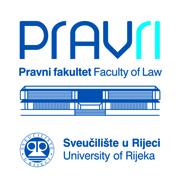PRESTITO VITALIZIO IPOTECARIO AND MANDATUM POST MORTEM
TWO EXAMPLES OF VALID AGREEMENTS AS TO SUCCESSION BETWEEN THE PRESENT AND THE PAST
DOI:
https://doi.org/10.30925/zpfsr.38.2.9Keywords:
mandatum post mortem; agreements as to succession; prestito vitalizio ipotecario; European private law; mandatum mortis causa; Italian reverse mortgage; mandatum post mortem; , actio doli’s subsidiarity; Roman law; testamentary dispositionsAbstract
The paper focuses on the post mortem mandate, an agreement used to protect
some interests arising after the mandator’s death, both in Italian legal system
and in Roman Law. Given that the latest doctrine has considered invalid a
post mortem mandate where the nature of the mandatory’s tasks is economic,
as it does not comply with art. 458 Cod. Civ., this article explores the issues
suggesting that the recent introduction of the ‘reverse mortgage’ within the
Italian legal system could be considered as a new step towards overcoming
the prohibition of agreements as to succession. After analysing the current
legislation, also within the framework of European private law, the research
dwells on post mortem mandatum in Roman law, trying to show that such
consensual contract could be considered as a succession agreement. After
having demonstrated the difference between the mandatum post mortem
(understood as a contract) and other testamentary dispositions defined as
mandatum post mortem as well, a source showing the possible economic nature
of the Roman mandatum post mortem is considered, to conclude that there
were Roman law cases, like that of Gaio in D. 17.1.13, proving the existence of
bilateral agreements intended to fulfil an economic function casually related to
the mandator’s death.
Additional Files
Published
How to Cite
Issue
Section
License
Collected Papers is an open access journal. Journal does not charge article processing charges (APC) to authors. It is licensed under CC BY-NC licence 4.0.
Collected Papers of the Law Faculty of the University of Rijeka" is an Open Access journal. Users are allowed to read, download, copy, redistribute, print, search and link to material, and alter, transform, or build upon the material, or use them for any other lawful purpose as long as they attribute the source in an appropriate manner according to the CC BY licence.
The papers published in "Collected Papers of the Law Faculty of the University of Rijeka" can be deposited and self-archived in the institutional and thematic repositories providing the link to the journal's web pages and HRČAK.
Upon acceptance of the manuscript for publication by this journal, the author can publish same manuscript in other journals only with the permission of the Editorial Board (secondary publication). A repeated publication should contain a notice as to where the manuscript was originally published.



